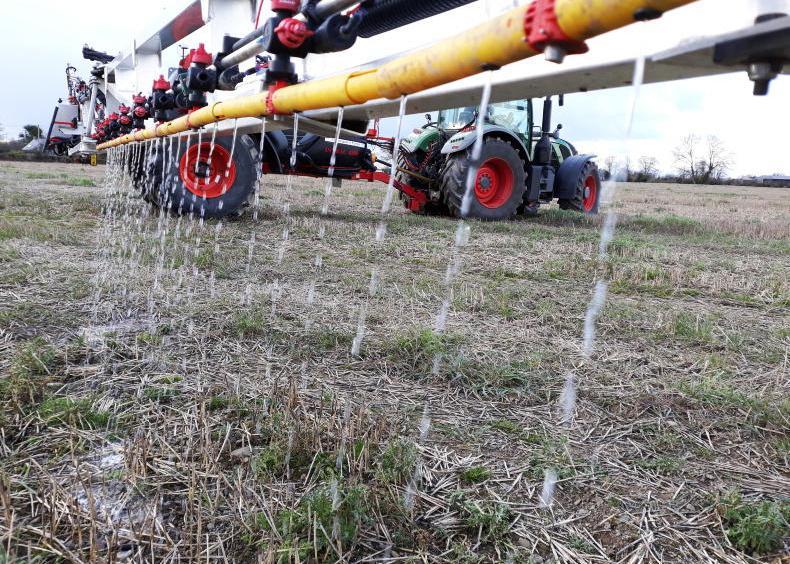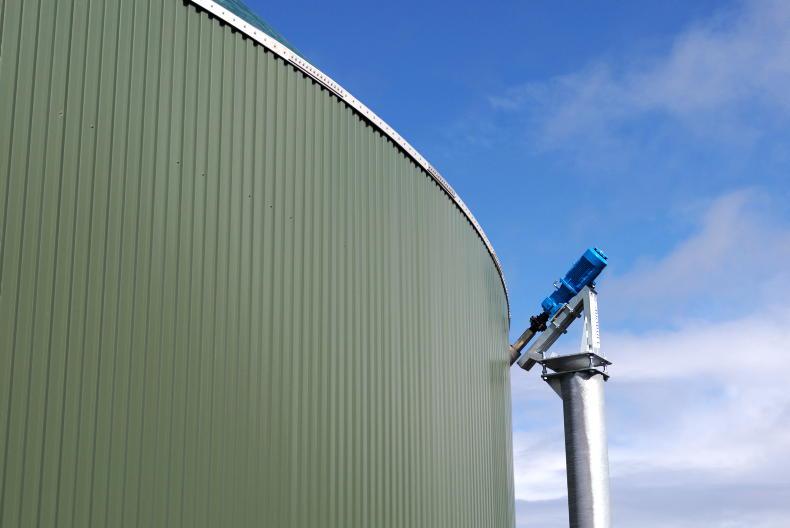Irish agriculture has, as a sector, probably more to gain than lose from the inevitable policy changes that will have to be implemented to combat climate change.
Looking at energy generation, we are undoubtedly going to see more renewables that use farm land. Europe is not short of food and farmers are shorter of opportunities to use land profitably than the European population is of food.
Last week, there was at last the unveiling of a sensible policy to use ethanol derived from Irish wheat in Irish petrol.
We already use 5% ethanol in the petrol sold in Ireland and the modest proposal was that the 5% figure be doubled to the 10% figure common in the United States and other EU countries.
We have a chance with the potential of ethanol from wheat and also biodiesel from oilseed rape, to do better
The technology has fully proven that the use of Irish wheat as a feedstock would be a welcome extra outlet for Irish tillage farming.
Its use would be much more transparent and nationally useful than the highly dubious re-used cooking oil, which masquerades as a biodiesel renewable fuel at the moment. As An Bord Pleanála pointed out this week, we as a country have badly handled farm energy crops, with poorly thought out and woefully implemented policies.
We have a chance with the potential of ethanol from wheat and also biodiesel from oilseed rape, to do better.
Last year, I saw the strides made by the Irish owners of an ethanol plant in Hungary, using maize rather than wheat
The potential for a coupled payment, along the lines of the existing beans national top-up, should be seriously examined.
Last year, I saw the strides made by the Irish owners of an ethanol plant in Hungary, using maize rather than wheat.
The organisation and the spin-offs to local farmers were impressive and should serve as a model.
On the other side of the climate change coin, I was interested to hear the New Zealand Trade Minister David Parker, who visited Dublin last week, strongly defend the counting of methane as different from carbon dioxide (CO2).
We have seen that forests absorb CO2, for which we get credit
He claimed their policy was to aim for a 1% reduction in methane emissions per year over the next ten years which, as Teagasc have pointed out, should be easily attainable from breeding improvements, nutrition and slurry handling technology.
One element left unclear from the New Zealand visit was the place of forestry. We have seen that forests absorb CO2, for which we get credit.
The amount of energy spent in harvesting the wood features greatly in the New Zealand calculations compared to here. We could do with clarification on this key point.
Read more
Dempsey at Large: food, fuel and fibre the fundamental uses of land
Irish agriculture has, as a sector, probably more to gain than lose from the inevitable policy changes that will have to be implemented to combat climate change.
Looking at energy generation, we are undoubtedly going to see more renewables that use farm land. Europe is not short of food and farmers are shorter of opportunities to use land profitably than the European population is of food.
Last week, there was at last the unveiling of a sensible policy to use ethanol derived from Irish wheat in Irish petrol.
We already use 5% ethanol in the petrol sold in Ireland and the modest proposal was that the 5% figure be doubled to the 10% figure common in the United States and other EU countries.
We have a chance with the potential of ethanol from wheat and also biodiesel from oilseed rape, to do better
The technology has fully proven that the use of Irish wheat as a feedstock would be a welcome extra outlet for Irish tillage farming.
Its use would be much more transparent and nationally useful than the highly dubious re-used cooking oil, which masquerades as a biodiesel renewable fuel at the moment. As An Bord Pleanála pointed out this week, we as a country have badly handled farm energy crops, with poorly thought out and woefully implemented policies.
We have a chance with the potential of ethanol from wheat and also biodiesel from oilseed rape, to do better.
Last year, I saw the strides made by the Irish owners of an ethanol plant in Hungary, using maize rather than wheat
The potential for a coupled payment, along the lines of the existing beans national top-up, should be seriously examined.
Last year, I saw the strides made by the Irish owners of an ethanol plant in Hungary, using maize rather than wheat.
The organisation and the spin-offs to local farmers were impressive and should serve as a model.
On the other side of the climate change coin, I was interested to hear the New Zealand Trade Minister David Parker, who visited Dublin last week, strongly defend the counting of methane as different from carbon dioxide (CO2).
We have seen that forests absorb CO2, for which we get credit
He claimed their policy was to aim for a 1% reduction in methane emissions per year over the next ten years which, as Teagasc have pointed out, should be easily attainable from breeding improvements, nutrition and slurry handling technology.
One element left unclear from the New Zealand visit was the place of forestry. We have seen that forests absorb CO2, for which we get credit.
The amount of energy spent in harvesting the wood features greatly in the New Zealand calculations compared to here. We could do with clarification on this key point.
Read more
Dempsey at Large: food, fuel and fibre the fundamental uses of land









SHARING OPTIONS